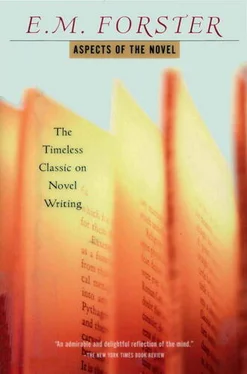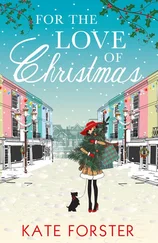Now, provincialism does not signify in a writer, and may indeed be the chief source of his strength: only a prig or a fool would complain that Defoe is cockneyfied or Thomas Hardy countrified. But provincialism in a critic is a serious fault. A critic has no right to the narrowness which is the frequent prerogative of the creative artist. He has to have a wide outlook or he has not anything at all. Although the novel exercises the rights of a created object, criticism has not those rights, and too many little mansions in English fiction have been acclaimed to their own detriment as important edifices. Take four at random: Cranford, The Heart of Midlothian, Jane Eyre, Richard Feverel. For various personal and local reasons we may be attached to these four books. Cranford radiates the humour of the urban midlands, Midlothian is a handful out of Edinburgh, Jane Eyre is the passionate dream of a fine but still undeveloped woman, Richard Feverel exudes farmhouse lyricism and flickers with modish wit, but all four are little mansions, not mighty edifices, and we shall see and respect them for what they are if we stand them for an instant in the colonnades of War and Peace, or the vaults of The Brothers Karamazov.
I shall not often refer to foreign novels in these lectures, still less would I pose as an expert on them who is debarred from discussing them by his terms of reference. But I do want to emphasize their greatness before we start; to cast, so to speak, this preliminary shadow over our subject, so that when we look back on it at the end we may have the better chance of seeing it in its true lights.
So much for the proviso "English". Now for a more important proviso, that of "period or periods." This idea of a period of a development in time, with its consequent emphasis on influences and schools, happens to be exactly what I am hoping to avoid during our brief survey, and I believe that the author of Gazpacho will be lenient. Time, all the way through, is to be our enemy. We are to visualize the English novelists not as floating down that stream which bears all its sons away unless they are careful, but as seated together in a room, a circular room, a sort of British Museum reading-room—all writing their novels simultaneously. They do not, as they sit there, think "I live under Queen Victoria, I under Anne, I carry on the tradition of Trollope, I am reacting against Aldous Huxley." The fact that their pens are in their hands is far more vivid to them. They are half mesmerized, their sorrows and joys are pouring out through the ink, they are approximated by the act of creation, and when Professor Oliver Elton says, as he does, that "after 1847 the novel of passion was never to be the same again," none of them understand what he means. That is to be our vision of them—an imperfect vision, but it is suited to our powers, it will preserve us from a serious danger, the danger of pseudo-scholarship.
Genuine scholarship is one of the highest successes which our race can achieve. No one is more triumphant than the man who chooses a worthy subject and masters all its facts and the leading facts of the subjects neighbouring. He can then do what he likes. He can, if his subject is the novel, lecture on it chronologically if he wishes because he has read all the important novels of the past four centuries, many of the unimportant ones, and has adequate knowledge of any collateral facts that bear upon English fiction. The late Sir Walter Raleigh (who once held this lectureship) was such a scholar. Raleigh knew so many facts that he was able to proceed to influences, and his monograph on the English novel adopts the treatment by period which his unworthy successor must avoid. The scholar, like the philosopher, can contemplate the river of time. He contemplates it not as a whole, but he can see the facts, the personalities, floating past him, and estimate the relations between them, and if his conclusions could be as valuable to us as they are to himself he would long ago have civilized the human race. As you know, he has failed. True scholarship is incommunicable, true scholars rare. There are a few scholars, actual or potential, in the audience today, but only a few, and there is certainly none on the platform. Most of us are pseudo-scholars, and I want to consider our characteristics with sympathy and respect, for we are a very large and quite a powerful class, eminent in Church and State, we control the education of the Empire, we lend to the Press such distinction as it consents to receive, and we are a welcome asset at dinner-parties.
Pseudo-scholarship is, on its good side, the homage paid by ignorance to learning. It also has an economic side, on which we need not be hard. Most of us must get a job before thirty, or sponge on our relatives, and many jobs can only be got by passing an exam. The pseudo-scholar often does well in examination (real scholars are not much good), and even when he fails he appreciates their innate majesty. They are gateways to employment, they have power to ban and bless. A paper on King Lear may lead somewhere, unlike the rather far-fetched play of the same name. It may be a stepping-stone to the Local Government Board. He does not often put it to himself openly and say "That's the use of knowing things, they help you to get on." The economic pressure he feels is more often subconscious, and he goes to his exam, merely feeling that a paper on King Lear is a very tempestuous and terrible experience but an intensely real one. And whether he be cynical or naïf, he is not to be blamed. As long as learning is connected with earning, as long as certain jobs can only be reached through exams, so long must we take the examination system seriously. If another ladder to employment were contrived, much so-called education would disappear, and no one be a penny the stupider.
It is when he comes to criticism—to a job like the present—that he can be so pernicious, because he follows the method of a true scholar without having his equipment. He classes books before he has understood or read them; that is his first crime. Classification by chronology. Books written before 1847, books written after it, books written after or before 1848. The novel in the reign of Queen Anne, the pre-novel, the ur-novel, the novel of the future. Classification by subject matter—sillier still. The literature of Inns, beginning with Tom Jones; the literature of the Women's Movement, beginning with Shirley; the literature of Desert Islands, from Robinson Crusoe to The Blue Lagoon; the literature of Rogues— dreariest of all, though the Open Road runs it pretty close; the literature of Sussex (perhaps the most devoted of the Home Counties); improper books—a serious though dreadful branch of inquiry, only to be pursued by pseudo-scholars of riper years, novels relating to industrialism, aviation, chiropody, the weather. I include the weather on the authority of the most amazing work on the novel that I have met for many years. It came over the Atlantic to me, nor shall I ever forget it. It was a literary manual entitled Materials and Methods of Fiction. The writer's name shall be concealed. He was a pseudo-scholar and a good one. He classified novels by their dates, their length, their locality, their sex, their point of view, till no more seemed possible. But he still had the weather up his sleeve, and when he brought it out, it had nine heads. He gave an example under each head, for he was anything but slovenly, and we will run through his list. In the first place the weather can be "decorative", as in Pierre Loti; then "utilitarian", as in The Mill on the Floss (no Floss, no Mill; no Mill, no Tullivers); "illustrative", as in The Egoist; "planned in preestablished harmony", as by Fiona MacLeod; "in emotional contrast", as in The Master of Ballantrae; "determinative of action", as in a certain Kipling story, where a man proposes to the wrong girl on account of a mud storm; "a controlling influence", Richard Feverel; "itself a hero", like Vesuvius in The Last Days of Pompeii; and ninthly, it can be "non-existent", as in a nursery tale. I liked him flinging in nonexistence. It made everything so scientific and trim. But he himself remained a little dissatisfied, and having finished his classification he said yes, of course there was one more thing, and that was genius; it was useless for a novelist to know that there are nine sorts of weather, unless he has genius also. Cheered by this reflection, he classified novels by their tones. There are only two tones, personal and impersonal, and having given examples of each he grew pensive again and said, "Yes, but you must have genius too, or neither tone will profit."
Читать дальше












